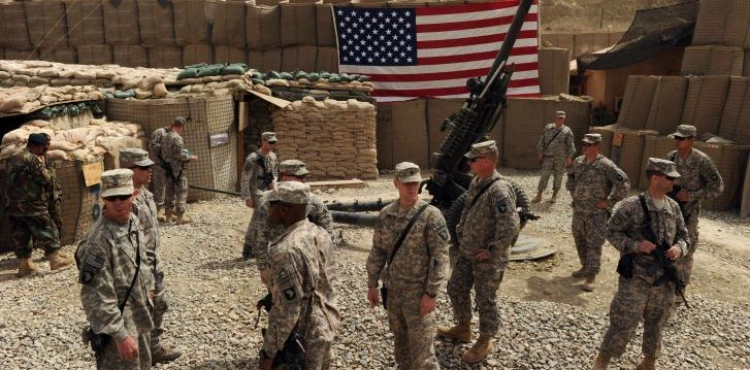Washington _ Agencies
After Afghanistan, where the US military sank into the quagmire of war 17 years ago, the United States is preparing for another open war, but this time in Syria, the administration of President Donald Trump announced this week that the US troops will remain on Syrian territory as long as Iran does not leave.
"We will not leave as long as the Iranian forces remain outside Iran´s borders, including Iran´s allies and armed groups," White House National Security advisor John Bolton told reporters Monday.
It is not the first time a US official has hinted at a long-term U.S. presence on Syrian territory. Washington has deployed about 2,000 troops as part of the anti-Islamic State campaign in January, after the Pentagon announced that the United States would maintain a military presence in Syria "as long as necessary" to prevent any resurgence of the Islamic State.
On June June, US Defense secretary Jim Mathis warned US allies that leaving Syria immediately after the fighting against ISIS would be a "strategic mistake."
But it is the first time that the departure of US troops is directly linked to the presence of Iranian soldiers and Iran loyalists in Syria. This direct link would alter the nature of the intervention in Syria that is officially justified by the fight against jihadists after several deadly attacks in Europe. There will be no war against the Islamic State but it will become an indirect war against Iran.
Thousands of members of the Lebanese Hezbollah in Syria are fighting alongside the forces of the Syrian regime. Iranian advisors on the ground also support these forces.
Hezbollah secretary General Hassan Nasrallah finally announced that his forces were staying in Syria "until further notice."
But in response to a question about Bolton´s remarks, Mathis stressed that U.S. policy in Syria has not changed. "We are in Syria to defeat the Islamic State organization and make sure that it will not return once we turn our backs," he said.
The US defense secretary, whose remarks were often more cautious compared to Bolton, stressed that the situation on the "Earth is complex ", adding "there are many sensitivities and peculiarities, and I am the first to recognize them."
The prospect of an open war is a matter of particular concern to France. Foreign Minister Jean-Yves Le Drian warned Monday that the region around Syria could see a "lasting war" if no political solution was found in the country.
"Working for a political solution is the responsibility of (Syrian president) Bashar al-Assad as well as those who support him (...) or we can move towards a lasting war in the region," he said on the sidelines of the annual meetings of the United Nations General Assembly.
"There are now five armies in Syria, and recent incidents show that the danger of a regional war is a real danger," he said.
Apart from the risk of disagreements within the US-led international coalition against the Islamic State, which is waging military operations in northern Syria in support of Syria´s democratic forces (an Arab Kurdish alliance), the strategic shift is likely to be dangerous, says Andrew Baraseetti of the research center " RAND Corporation ".
"As a candidate and as president, Trump said the war in Iraq was a mistake and he wanted to pull US soldiers out of Syria," he told a national security expert.
"But U.S. policy is now based on survival in Syria as long as Iran remains in this country, and Iran does not seem to be on the move," he added. "There is therefore a risk of escalation or accidents with the Russian army as it did last week with Israel," he said.
On 17 September, the Syrian army mistakenly dropped a Russian military aircraft carrying 15 military personnel and blamed Moscow for Israel. Syrian air defenses opened fire to intercept Israeli missiles during a raid on ammunition depots in the northwestern province of Latakia.
The Kremlin announced a week later that the S-300 missile system would be handed over to Damascus in the next two weeks, causing an escalation of rhetoric between Russia and Israel.












